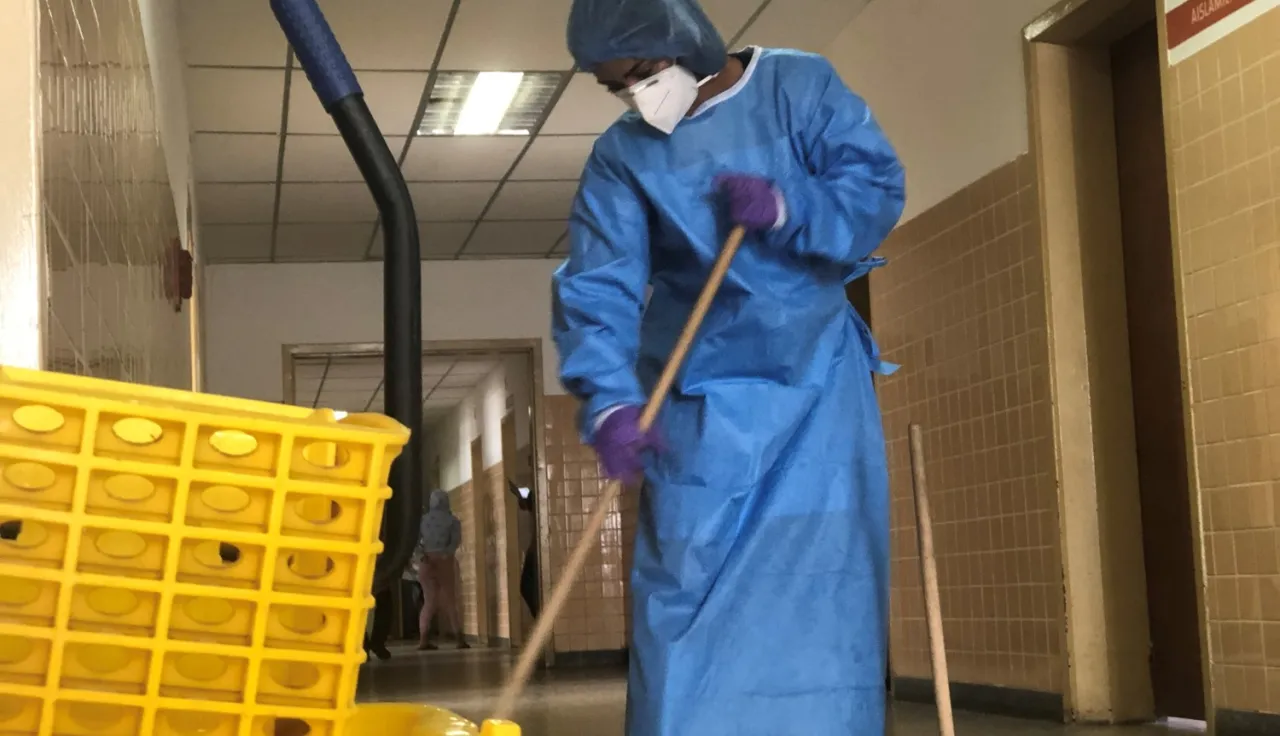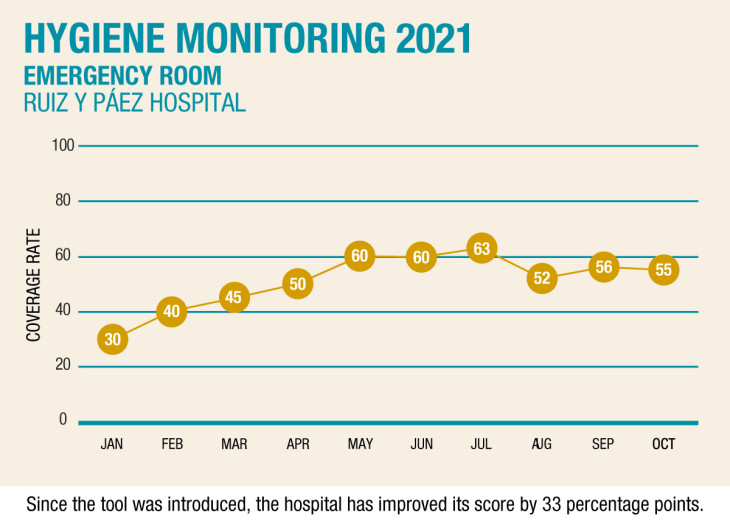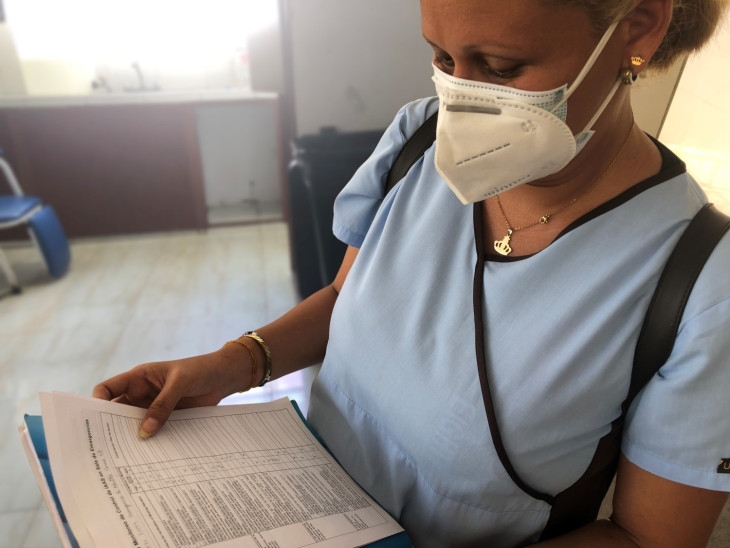Venezuela: improving hygiene and sanitation conditions for patients

Maintaining a high standard of sanitation is a crucial role in hospitals, and one that often goes unnoticed. The team responsible for performing this task works around the clock all year round to ensure a clean and hygienic environment with optimal conditions for the hospital’s medical staff to carry out their work and for patients to get better
At the Ruiz y Páez University Hospital, which is the biggest in Bolívar, one of the states hardest affected by the armed violence in southern Venezuela, keeping the emergency department clean and tidy is vital to delivering the best possible care to the injured people and multiple trauma victims brought to the facility. Since February 2021, the housekeeping team has been using a tool designed by the International Committee of the Red Cross (ICRC) to monitor hygiene standards at the hospital.
The tool is a checklist of the criteria that must be met to ensure the required standard of cleanliness throughout the hospital. Those in charge of housekeeping go over the list fortnightly to check what is being done and what is not. For example, they check that waste containers are available at all the required points, that all personnel working in the emergency room wear medical uniforms and that the necessary handwashing stations are available with liquid soap and a drying system (in the scrub area).
The tool provides a general picture of the hygiene situation for a specific period – a month, a quarter or some other period of time – facilitating the overall monitoring of conditions by measuring a set of minimum standards of hygiene.

Vicky César, who is responsible for the prevention and control of hospital-acquired infections at this health facility and for implementing the tool, underlines that "it is crucial to controlling and preventing infections that patients can contract during a hospital stay".
For Vicky, some of the benefits of using the tool are that it improves conditions for health workers and increases the awareness of everybody at the hospital, not just the housekeeping team, about hygiene and sanitation, which has strengthened collaboration from all the staff.

Fanny Martínez, the head of housekeeping at the hospital, remarks that her team "feel more comfortable with their tasks now that biosafety measures have been strengthened; they feel safer and are able take precautions because they have the necessary supplies of soap, gloves and clean water. The emergency room has changed; it smells different now and the housekeeping staff feel more protected."
It is not just the implementation of this tool that has improved protection; the housekeeping staff now also have the resources they need to meet all the criteria on the checklist, such as cleaning fluids, chlorine, soap, brooms, mops, plastic bags, gloves, coveralls, boots, aprons and buckets.
Part of the ICRC's support for the hospital's emergency department includes regular donations of the supplies needed for the cleaning work, allowing Fanny's team to improve their performance and increasing their motivation to continue doing their job well. "Working like this is much more rewarding," she observes.

The improvement in conditions for the housekeeping team means benefits for the whole hospital. It helps to prevent nosocomial or health-care associated infections so that, for example, someone who has to visit the emergency room for a fracture does not contract an infection while there. Higher standards of cleanliness also contribute to creating a safer working environment for health workers and making patients and their families feel safe and comfortable.
The housekeeping staff know that hygiene is an ongoing process and that there is room for further improvement, but they are satisfied because "users have noticed the change and comment on it," explains Fanny. Her team corroborate this: Anabel (housekeeper) remarks that "it's nothing like how it used to be" and Ángel (janitor) concludes that "the patients are very grateful".
The ICRC supports the Ruiz y Páez Hospital emergency department in improving hygiene and sanitation by providing:
- training on the disinfection of water by chlorination
- training on the use of personal protective equipment in COVID-19 areas
- donations of liquid hahnd soap, chlorine, floor cleaner, plastic bags, protective coveralls and face masks, gloves, boots, brooms, dustpans, mops and other such items to ensure that the housekeeping staff can carry out their work in safety and comfort.



